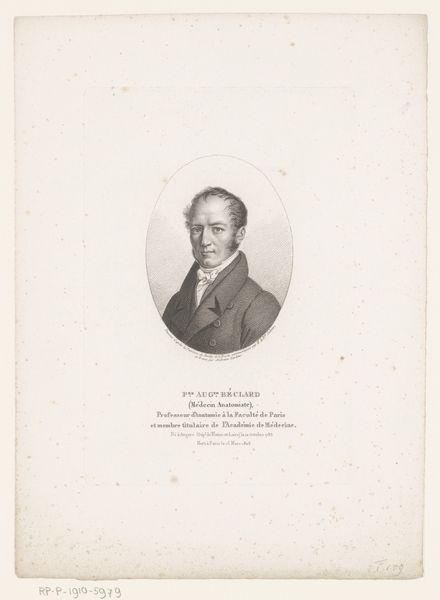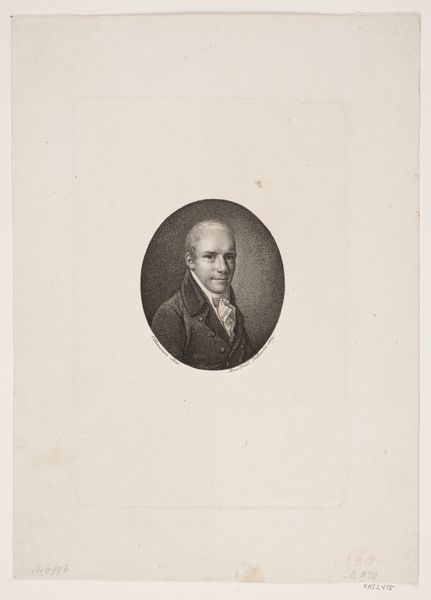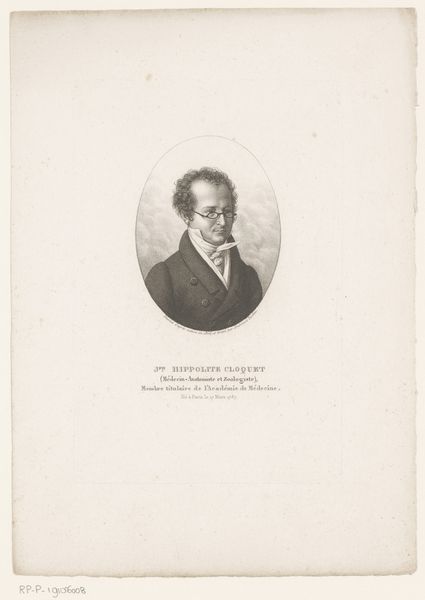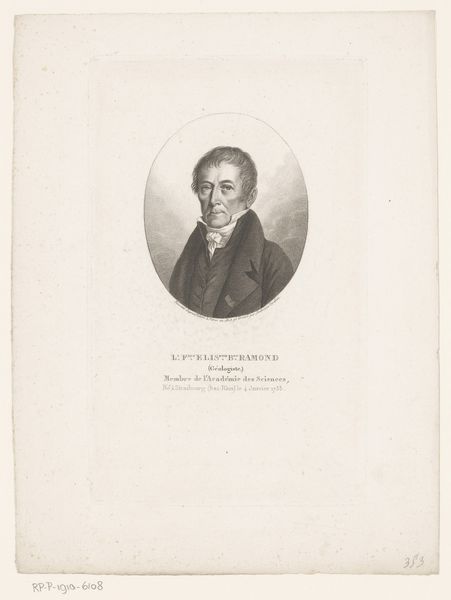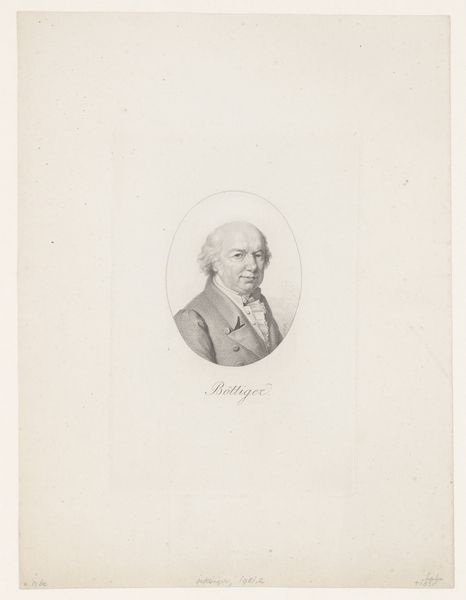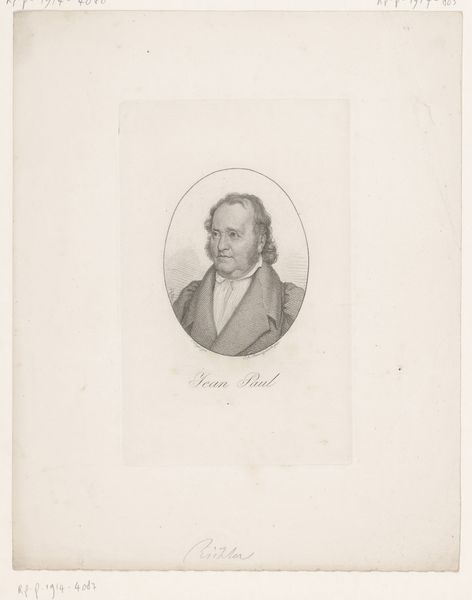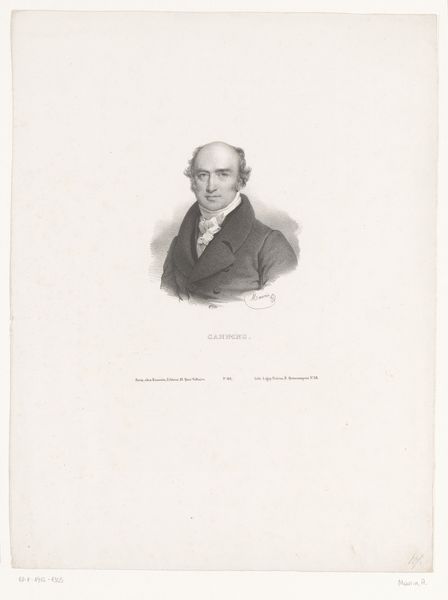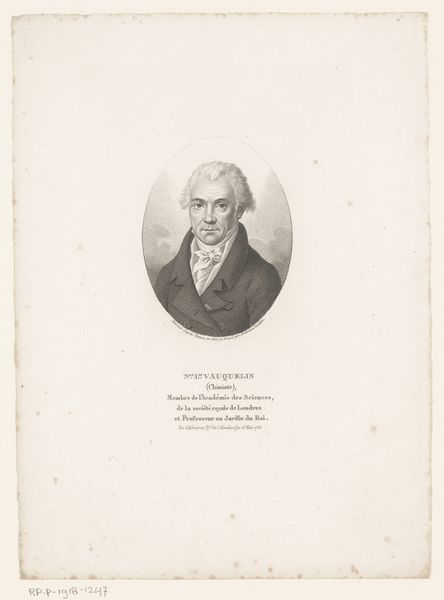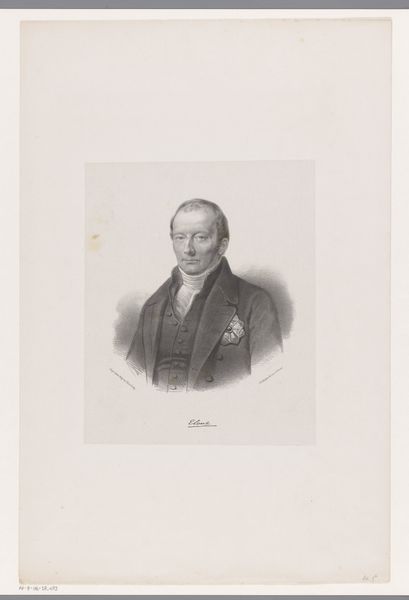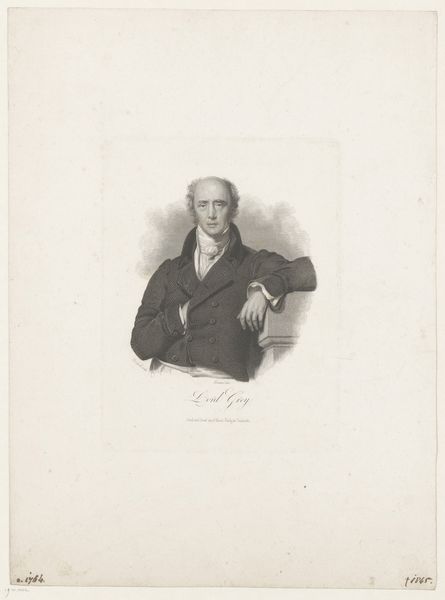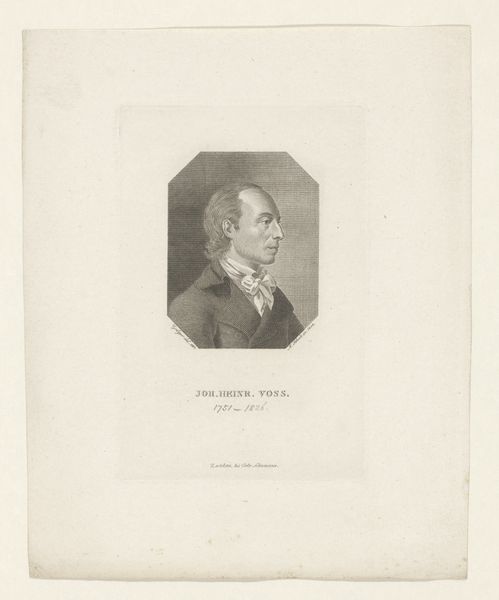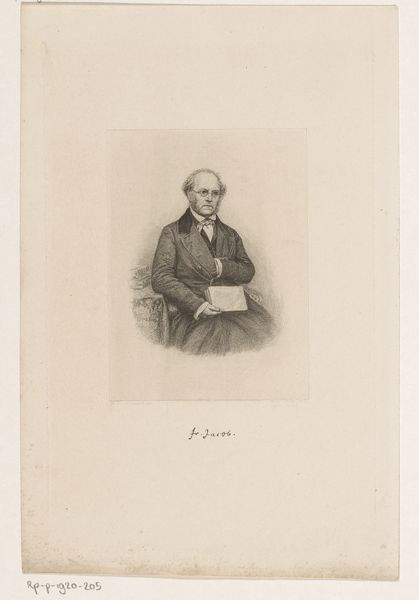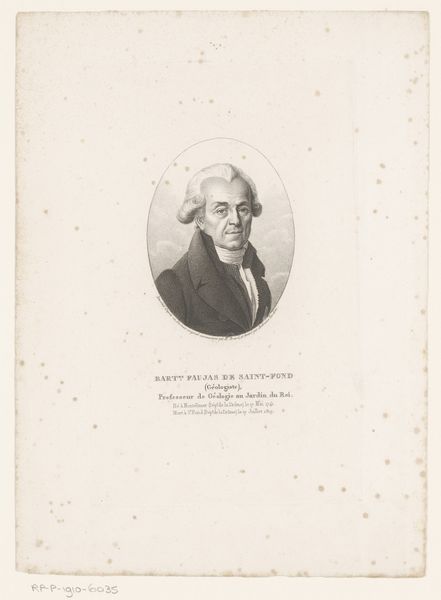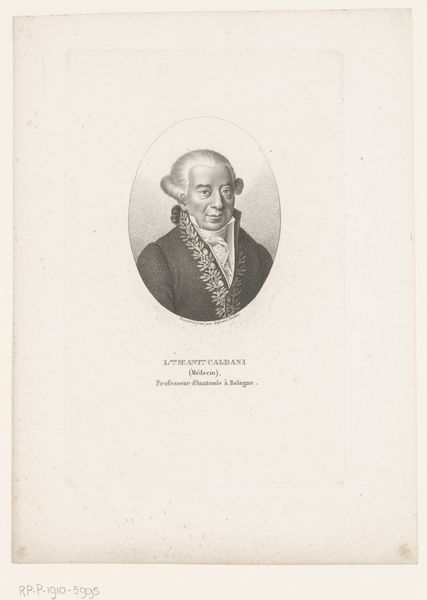
print, engraving
#
portrait
# print
#
engraving
#
realism
Dimensions: height 202 mm, width 141 mm
Copyright: Rijks Museum: Open Domain
Curator: This engraving presents "Portret van Pierre Augustin Béclard," made sometime between 1818 and 1832 by Charles Aimé Forestier. It’s a striking example of realist portraiture in print. What do you think? Editor: He looks like someone who’s about to tell me exactly what he thinks of my latest artistic endeavor—and not in a nice way! The pursed lips are a dead giveaway. Curator: Perhaps. Though reading portraits is tricky; power dynamics are usually encoded within the genre. We see Béclard centered, his gaze direct, a statement of authority, no? How does his position in French society shape how he is represented, and, perhaps, wants to be seen? Editor: Authority, definitely. But the way the light catches the side of his nose gives him a… softness? Almost vulnerability. Maybe he’s secretly hoping my artistic endeavor is amazing. Curator: It’s a lovely tension, really. This printmaking technique, particularly engraving, allows for incredible detail. Think about the social context, the rise of the bourgeoisie, and how portraiture shifts from oil paintings, reserved for elites, to printed images which democratize representation. Editor: And there's a formality, even a chill, that you just don’t get in a painting. I imagine the process was less forgiving, more about capturing the essence of the man—the ideal he wanted to project. Makes you wonder what secrets lie beneath that stoic surface. Curator: Indeed, those tensions highlight interesting conversations regarding identity and representation. Editor: Exactly. Gives me a yearning to meet him...and immediately offer to muss his perfectly coiffed hair. Curator: So, from coded authority to nuanced individual – interesting journey! Editor: Absolutely. Art, in all its forms, is a kind of communication. What starts as seemingly "just a portrait" morphs into dialogue, stories—histories colliding, influencing each other. And that's… well, that’s exciting, isn't it?
Comments
No comments
Be the first to comment and join the conversation on the ultimate creative platform.
